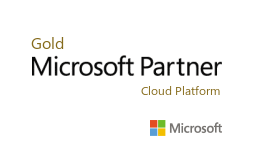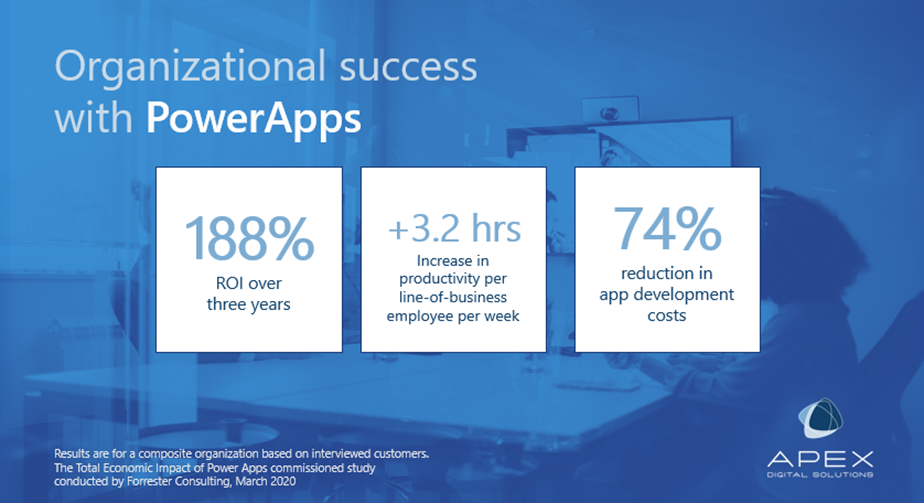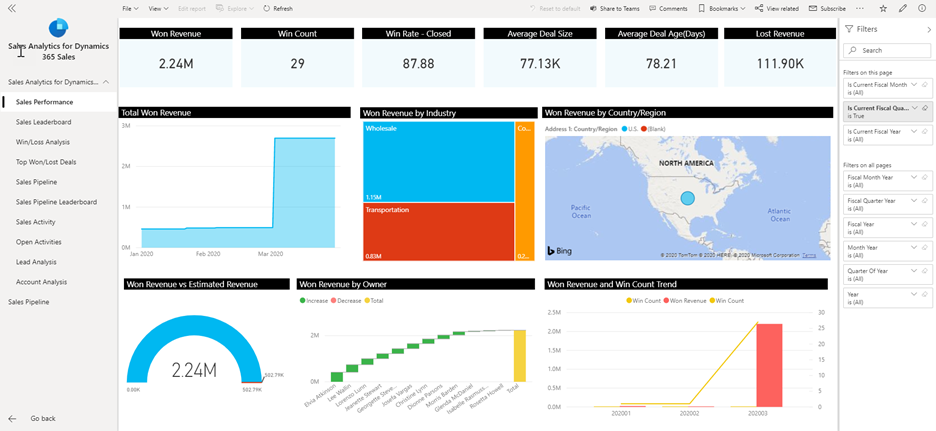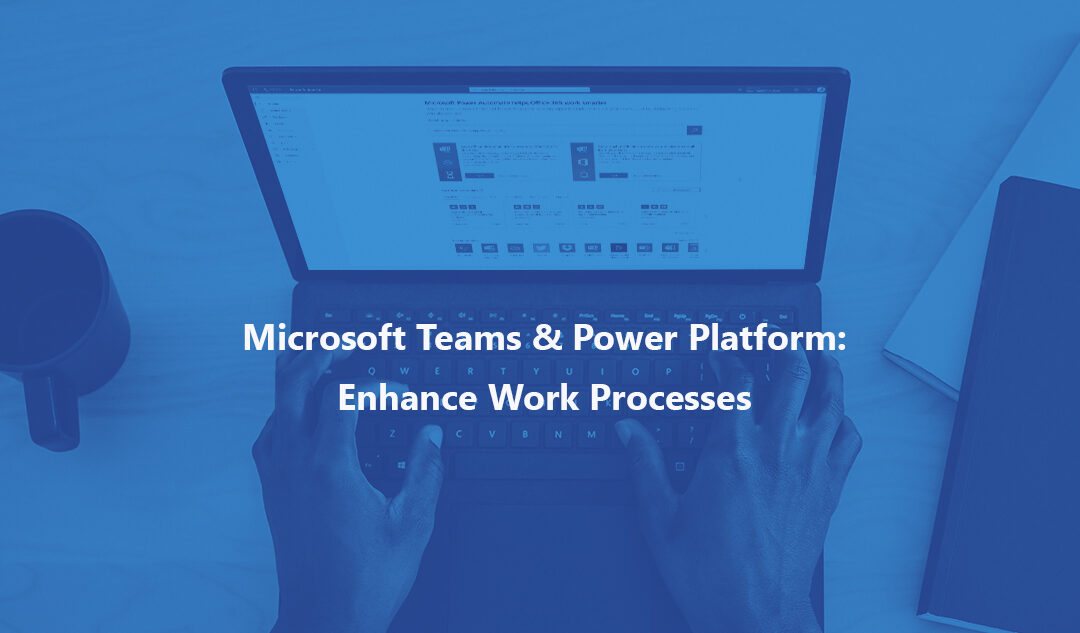Overview
Discover how to fuel organic interactions, foster a culture of collabroation, and enhance your organization’s overall productivity with Microsoft Teams and Power Platform.

In April 2020, the global remote workforce grew at an unprecedented rate because of the novel coronavirus. With this came the critical need for in-office collaboration experiences and business processes to be translated to a remote work environment. This led to many organizations adopting Microsoft Teams.
Microsoft Teams is the hub for teamwork within Microsoft 365. With Microsoft Teams, users can:
- Connect in real-time with others in threaded, persistent, and contextual chat.
- Integrate their favorite tools across Office 365 into a single platform.
- Communicate across boundaries with anyone through virtual phone systems and calling plans.
- Drive meaningful and connected collaboration with intelligent meetings.
Additionally, since many organizations are now storing their data within the cloud, there is a unique opportunity to use that data to improve business processes with Microsoft Power Platform.
Microsoft Power Platform allows organizations to analyze data, automate solutions, and build no-code/low-code apps and bots to enhance business processes. Power Platform includes:
- Power Apps: Professional-grade, low-code/no-code apps.
- Power BI: Self-service data analytics and insights.
- Power Automate: Low-code workflow automation.
- Power Virtual Agents: Intelligent chatbots with no coding required.
In this blog, we will discuss how each of these Power Platform tools integrate with Teams, and how you can use this integrated workplace solution to foster a culture of collaboration and enhance overall organizational productivity.
With Microsoft Power Apps, anyone in your organization can build custom apps that connect existing data and systems to solve business problems faster and drive user efficiency. According to a Forrester study, utilizing Power Apps resulted in a 74% reduction in app development costs for organizations, with a 188% ROI over three years.

With Microsoft Teams, you can pin PowerApps directly within a Teams channel, allowing users within your Team to co-author and collaborate on an app within the Microsoft Teams client. You can also connect to business data in SharePoint lists, Common Data Service, and 300+ other connected services.
HAVI, a global logistics organization, used the pairing of Microsoft Teams and Power Apps to speed up their traditionally slow onboarding process. They built an app that automates the full process, allowing new hires to complete paperwork and upload it to their HR system. The app then leads them through the rest of the onboarding process, assigning action items to departments like Payroll and IT—all within Microsoft Teams.
With Power BI, users can easily share real-time data with clean, clear, and insightful dashboard visualizations. These dashboards and reports can be published in SharePoint, Microsoft Teams, and on websites.
With Microsoft Teams’ integration with Power BI, users can add Power BI reports directly to a Microsoft Teams channel as a tab. Reports can also be made within seconds from Excel or CSV files within SharePoint libraries. During a Microsoft Teams meeting, users can easily share data insights and custom Power BI dashboards.

PayPal, the innovative financial technology company, have implemented Power BI visualizations into their Teams Meetings. This allows their team members to easily share a project’s status and goals to meeting attendees, making meetings more meaningful and productive. These visualizations can be updated in real-time by users who manipulate the connected Excel spreadsheet, allowing for quick adjustments of figures during a meeting.
Power Automate (formerly Microsoft Flow) allows any user, including someone with no coding abilities, to create workflows that automate existing business processes. With Power Automate, users can connect and automate over 300 cloud and on-premises data services. Microsoft has included hundreds of prebuilt templates for business processes including alerts, approvals, data collection, and reminders.
Microsoft Teams’ integration with Power Automate allows users to create workflows directly within Teams. You can receive alerts and notifications, aggregate and automate all your document approvals, and trigger manual flows like company-wide announcements without leaving the Microsoft Teams client.
Sales Teams can utilize Power Automate and Teams by creating a Sales opportunity directly from where the conversation began, executives can set up alerts to follow-up with a specific chat message in teams, and your customer success team can receive automatic notifications when a new survey response is submitted. These are all prebuilt templates already for you to use within Power Automate—no coding required.
For another example of how processes within Microsoft Teams can be automated with Power Automate, check out this tutorial video “How to Send Custom Notification to Microsoft Teams with Power Automate.”
Power Virtual Agents allows organizations to respond rapidly to customer and employee needs by creating low-code intelligent chatbots. Mitigating common customer and internal issues to an automated chatbot frees up employees to focus on more complex, high-level job functions.
Create an HR bot within Microsoft Teams so employees can easily chat and make benefits changes, time off requests, travel expense approvals, and so on. Your customer support team can also benefit from a ticketing chatbot built from your organization’s support FAQs, saving support desk bandwidth by automatically assisting customers with common problems.

Power Virtual Agents also comes with built-in monitoring and data insights, providing your team with the opportunity to continuously improve the chatbot performance.
By integrating Microsoft Teams with Power Platform features, users can get much more out of the Teams platform. This integrated workplace solution can foster a culture of collaboration and significantly enhance organizational productivity.
At Apex Digital Solutions, we are certified Microsoft Teams experts. Our Ready for Microsoft 365 and Ignite for Microsoft Teams service offerings will empower your organization be more secure, productive, and engaged with Microsoft Teamwork and remote work solutions. Contact us at hello@apexdigital.com to get started with driving successful change in your organization.

